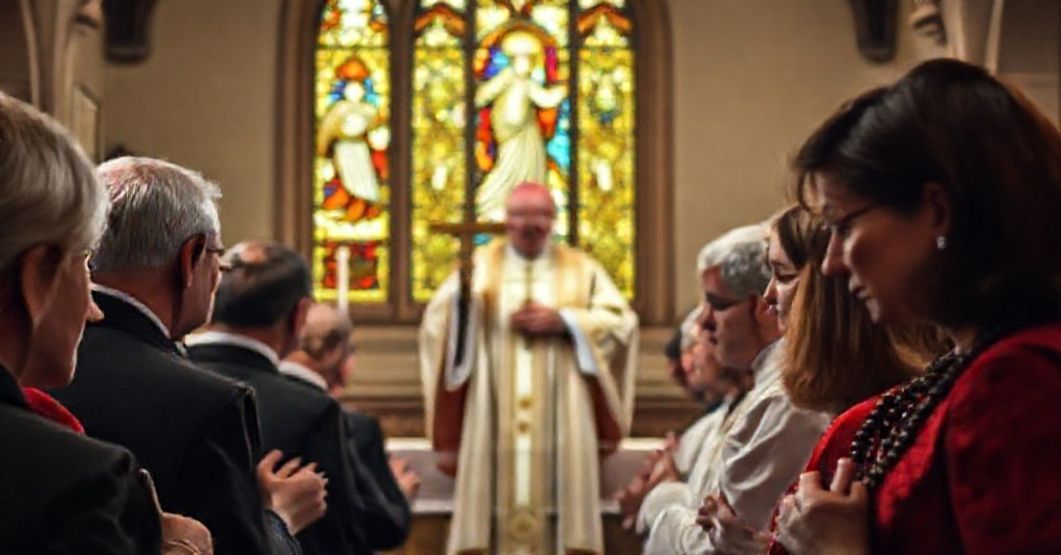Scotland’s Suicide Bill Exposes Modernist Betrayal of the Vulnerable
Catholic News Agency reports (November 11, 2025) on Scottish bishops’ opposition to the Assisted Dying for Terminally Ill Adults Bill after parliamentary rejection of amendments that would have restricted eligibility to terminal cases with less than six months prognosis and mandated palliative care funding. The article quotes Bishop John Keenan warning that the bill’s broad definition of “terminal illness” potentially includes those with disabilities, mental health conditions, or financial hardships. Disability advocates like MSP Pam Duncan-Glancy and pro-life voices echo concerns about threats to vulnerable populations. The piece concludes by urging Catholics to lobby legislators against the bill.
Naturalistic Presuppositions in “Compassionate” Language
The article’s repeated use of terms like “compassion” and “choice” betrays the naturalism condemned by Pius IX in Syllabus Errorum (1864): “Human reason, without any reference whatsoever to God, is the sole arbiter of truth and falsehood, and of good and evil” (Error #3). The bill’s architects presume man’s absolute autonomy over life – a direct defiance of Quas Primas (1925): “Nations will be happy and peaceful only when they recognize the King of kings and Lord of lords and obey His laws” (Pius XI). Nowhere does the analysis confront the ontological reality: Life belongs solely to Christ the King, not parliamentary committees.
“The boundaries keep moving, and what starts as a choice for a few becomes an assumption for many.” (Paul Atkin)
This observation inadvertently exposes the hermeneutic of rupture inherent in all anti-life legislation. What the article dismisses as “safeguard rejection” constitutes the systematic dismantling of the divine law enumerated in Lamentabili Sane (1907): “Revelation was merely man’s self-awareness of his relationship to God” (Condemned Proposition 20). By omitting the eternal consequences of suicide – the four last things – the report reduces morality to temporal consequences.
Theological Vacuum in “Pro-Life” Objections
While Bishop Keenan correctly identifies risks to disabled persons, the critique remains trapped in humanitarianism rather than dogmatic truth. The Church’s opposition to suicide isn’t primarily about “protecting the vulnerable” but upholding Dei dominium (God’s dominion). St. Augustine’s City of God (Book I, Ch. 20) declares suicide “detestable and damnable wickedness” – a truth absent from modern episcopal statements. The conciliar sect’s spokesmen substitute Catholic teaching with secular bioethics, mirroring the modernist error condemned in Pascendi Dominici Gregis: “Dogmas are not unchangeable but subject to evolution” (St. Pius X, 1907).
Notably absent is any reference to the propitiatory value of suffering – the very heart of redemptive theology. Where Pius XII taught that “suffering is a precious gift which places souls in contact with the crucified Christ” (Radio Message, 1954), the conciliar episcopate offers only palliative care as alternative. This reduction of the via crucis to medical management constitutes apostasy from Catholic asceticism.
Ominous Legislative Trajectory
The rejected amendments reveal the bill’s true intent: not exceptional relief but normalized extermination. By refusing to exclude “nonterminal conditions” like depression or financial hardship, Scottish legislators enact what Pius XI called “the cult of man” – the worship of human will above divine ordinance. The slippery slope isn’t incidental but programmatic, fulfilling the naturalist agenda outlined in the 1848 Communist Manifesto: “The bourgeois family will vanish with the vanishing of capital” (Section II).
Disability advocates correctly fear being targeted, but fail to identify the ideological engine: utilitarian eugenics masked as autonomy. As Belloc warned in The Servile State (1912), once society rejects the soul’s supernatural destiny, human worth becomes calculable by economic metrics. The bill’s allowance for suicide over “financial hardship” confirms this diabolical calculus.
Silence on Supernatural Realities
The gravest omission lies in the article’s avoidance of supernatural stakes. Nowhere does it mention:
- The eternal peril of suicide victims (Catechism of St. Pius X: “Suicides…die in mortal sin” Q. 103)
- The duty to spiritually combat despair through sacraments
- The demonic nature of euthanasia as inverted sacrifice
This silence reflects the conciliar sect’s abandonment of extra Ecclesiam nulla salus, reducing pastoral care to worldly comfort. As Archbishop Lefebvre observed: “When the Church stops preaching the cross, she becomes a humanitarian agency” (Spiritual Journey, 1988). True Catholic resistance wouldn’t merely lobby politicians but publicly exorcize this legislative blasphemy.
Scotland’s descent into thanatocracy exemplifies Pius XI’s warning: “When God and Jesus Christ are removed from laws and states…human society had to be shaken, because it lacked a stable and strong foundation” (Encyclical Ubi Arcano, 1922). Until Catholics restore the Social Kingship of Christ – not through parliamentary petitions but public consecration and reparation – such anti-life laws will proliferate.
Source:
Scotland’s bishops sound alarm as key safeguards rejected in assisted suicide bill (catholicnewsagency.com)
Date: 11.11.2025
